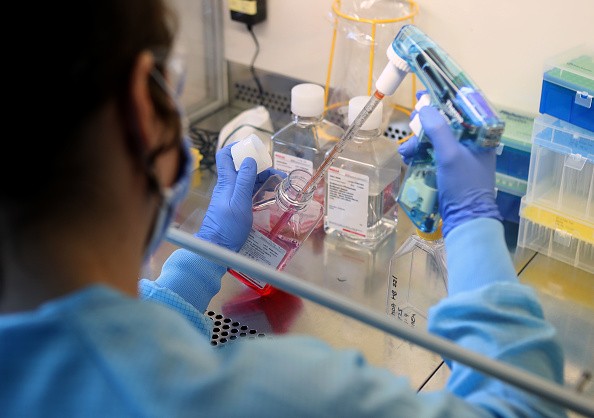Arthritis Drug Decreases COVID-19 Deaths Among Elderly, Says New Study
An arthritis drug was significantly found to cut deaths in elderly patients admitted to the hospital with COVID-19.

About two-thirds have been cut to the deaths in patients with coronavirus through an arthritis drug, giving medical experts a powerful weapon against the disease.
According to Daily Mail, the drug was first heard as a potential weapon against COVID-19 by a British firm.
The researchers said the arthritis drug reduced death rates by 71% to patients with moderate or severe conditions.
More importantly, the drug works in elderly patients, raising hopes that it would save the most vulnerable people.
The arthritis drug called baricitinib under the brand name Olumiant is a relatively new drug for rheumatoid arthritis, which is available for only three years.
However, in February, the drug identified as a candidate in helping treat the then-new threat of COVID-19.
London-based BenevolentAI examined thousands of existing medicines for signs that drugs would manifest in combating COVID-19, and that drug was picked out.
BenevolentAI's artificial intelligence program concluded that baricitinib would decrease the virus' ability to infect lung cells.
The pan-European researchers led by Sweden's Karolinska Institute validated the idea and reported baricitinib to slash death rates by two-thirds among admitted patients to the hospital with COVID-19.
Meanwhile, Professor Justin Stebbing, an NHS cancer specialist at Imperial College London, predicted that the arthritis drug helps save thousands of lives.
"The history of treatments for COVID-19 has not left many drugs standing. What has been left standing is two British-discovered drugs," Stebbing said.
Read also: Does Everything You Drink Smells Like This? You Might Have Coronavirus, Experts Say
Aside from baricitinib, asteroids dexamethasone was found to cut the risk of death in severely ill patients by 33%.
The results come from patients hospitalized COVID-19 patients with pneumonia at two hospitals in Spain and Italy, as per the journal Science Advances.
These results are encouraging as the study included a large cohort of elderly patients who are often excluded, Professor Volker Lauschke, who led the study, said.
In the research of the arthritis drug, 83 patients with an average age of 81 and those suffering from moderate to severe COVID-19 infection were given baricitinib.
Initially, the medication was identified as a drug with antiviral and anti-inflammatory effects, according to the scientists at Imperial College London in the UK.
Yahoo News reported that the patients in multiple hospitals across Spain and Italy had a 71% reduced risk of crying than patients who had not taken the drug.
The study found that 17% of COVID-19 patients who took the arthritis drug died or needed to have a ventilator, while 35% in the control group who were not given the medication died.
The findings follow with a large-scale of clinical trials, the research team says.
The study suggests baricitinib can aid recovery of moderate to severely ill COVID-19 patients.
In the laboratory, the researchers' team grew miniature human organs called organoids to study how exactly the arthritis drug may fight the coronavirus.
The findings showed that baricitinib could help work in two ways: block the virus entering human cells and reduce organ damage caused by inflammation.
The body releases different inflammatory molecules called cytokines and chemokines when infected with the coronavirus called SARS-CoV-2.
These molecules serve as a warning system for the body that tells the immune system the body is under attack. But in the case of COVID-19, specific cytokines and chemokines caused this warning system to be out of control, triggering a so-called cytokine storm.
Subscribe to Latin Post!
Sign up for our free newsletter for the Latest coverage!
© 2026 Latin Post. All rights reserved. Do not reproduce without permission.














